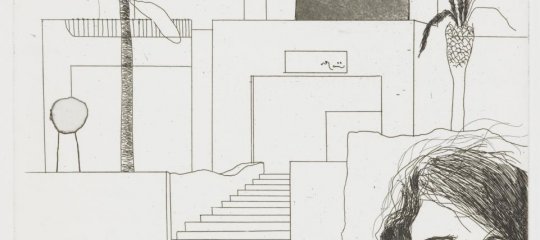Σκοποί της διδασκαλίας της λογοτεχνίας
Πέρασαν δύο εβδομάδες και δεν είχα κανένα νέο σας. Ούτε σχόλια, ούτε άλλες προτάσεις γύρω από τους στόχους και το χρονοδιάγραμμα. Δύο πράγματα μπορεί να συμβαίνουν: είτε σας κάλυψαν απόλυτα οι δικές μου προτάσεις είτε εκπέμπουμε σε τελείως διαφορετικό μήκος κύματος οπότε σκεφτήκατε «τι να λέμε τώρα…». Ελπίζω πάντως πως δε συμβαίνει το δεύτερο, αλλά ακόμη κι αν διαφωνούμε τελείως, όπως μπορεί να συμβεί στο μέλλον, είμαστε εδώ για να συζητάμε ελεύθερα και χωρίς δεύτερες σκέψεις, ελπίζω. Λέω να προχωρήσουμε στο κυρίως θέμα μας που είναι οι σκοποί της διδασκαλίας της λογοτεχνίας γενικά και ειδικά ως μέρος της διδασκαλίας της ξένης γλώσσας. Η διατύπωση σκοπών για τη διδασκαλία ενός αντικειμένου δεν είναι κάτι αθώο ούτε αντικειμενικό αλλά καθορίζεται από τις αντιλήψεις που έχουμε για το ρόλο της εκπαίδευσης μέσα στη σύγχρονη κοινωνία και το εθνικό κράτος, καθώς και από τις θεωρίες που επιλέγουμε για να περιγράψουμε τις ιδιότητες και τις δυνατότητες του αντικειμένου προς διδασκαλία, στην περίπτωσή μας της λογοτεχνίας. Στο κείμενο του Γρηγόρη Πασχαλίδη που θα βρείτε στην ενότητα «υποστηρικτικό υλικό» εκθέτονται κάποιες από τις γενικές αρχές που συμμεριζόμασταν όσοι ιδρύσαμε το 1994 την Ομάδα Ερευνας για τη Διδασκαλία της Λογοτεχνίας. Συνοψίζω εδώ τηλεγραφικά κάποιους από τους σκοπούς που πιστεύω ότι πρέπει να υπηρετεί η διδασκαλία της λογοτεχνίας στην Πρωτοβάθμια και τη Δευτεροβάθμια Εκπαίδευση, σε φυσικούς ομιλητές της γλώσσας στην οποία διαβάζεται η λογοτεχνία: · Αν ορίσουμε τον πολιτισμό (με τη βοήθεια των Πολιτισμικών Σπουδών ή cultural studies) ως ένα ετερογενές και συγκρουσιακό πεδίο παραγωγής νοημάτων, αναπαραστάσεων, αξιών και πρακτικών, και αν θεωρήσουμε ότι η λογοτεχνία με την τεράστια ποικιλία της σε μορφές και είδη αποτελεί ένα προνομιακό μέσο παραγωγής και διάδοσης αυτών των νοημάτων, αξιών κλπ, τότε το μάθημα της λογοτεχνίας δε μπορεί παρά να έχει ως σκοπό την κριτική αγωγή στο σύγχρονο πολιτισμό, την ισότιμη και δημιουργική συμμετοχή των μαθητών σε όσο το δυνατόν περισσότερες όψεις του. · Ως αποτέλεσμα του παραπάνω σκοπού προκύπτει ο δεύτερος που δεν είναι άλλος από τη συμβολή του μαθήματος στη διαμόρφωση της ταυτότητας του κάθε μαθητή χωριστά, δηλαδή την κατανόηση του εαυτού του, των εμπειριών του, των συνθηκών μέσα στις οποίες ζει. Απαραίτητο γι αυτό είναι η σύνδεση της λογοτεχνίας που διαβάζουμε με το παρόν, με τα προβλήματα που απασχολούν τους μαθητές. · Τελικά η λογοτεχνία χρησιμοποιείται στο μάθημα ως ένα πολύ δυναμικό μέσο επικοινωνίας τόσο ανάμεσα στον μαθητή αναγνώστη και στους κόσμους των κειμένων αλλά και μεταξύ των ίδιων των μαθητών αναγνωστών οι οποίοι ασκούνται στη χρήση όλο και περισσότερων αναγνωστικών στρατηγικών, αλλά και στην παραγωγή λόγου, προφορικού και γραπτού, προκειμένου να διαπραγματευτούν τα νοήματα και τις συμβολικές μορφές που συναντούν στα κείμενα. Δε χρειάζεται ίσως να τονιστεί ότι η γλωσσική ωφέλεια που προκύπτει είναι μεγάλη αν και εντελώς έμμεση, στη μορφή κυρίως της συσσωρευμένης γλωσσικής εμπειρίας και όχι της εκμάθησης γλωσσικών κανόνων με τη βοήθεια των λογοτεχνικών κειμένων, όπως τόσα χρόνια γινόταν στην εκπαίδευση. Αν τώρα στραφούμε προς το δικό σας χώρο, τη διδασκαλία δηλαδή της ξένης γλώσσας σε φοιτητές, σε ανθρώπους δηλαδή κάποιας ηλικίας οι οποίοι έχουν ήδη ένα, περισσότερο ή λιγότερο πλούσιο, ρεπερτόριο αναγνωστικών δεξιοτήτων και προφορική επάρκεια στη μητρική τους γλώσσα, αλλά όχι στην ξένη στην οποία καλούνται να διαβάσουν λογοτεχνία, πώς μπορούμε να προσαρμόσουμε τους παραπάνω σκοπούς στους δικούς σας μαθητές; Θα μπορούσαμε να πούμε ότι η ανάγνωση της λογοτεχνίας στη δική σας περίπτωση σκοπεύει: · Στην κριτική αγωγή στον ελληνικό πολιτισμό · Στην επαναδιαπραγμάτευση της ταυτότητάς τους μέσα από το διάλογο με τα κείμενα ενός άλλου πολιτισμού · Στη χρήση της λογοτεχνίας ως μέσο επικοινωνίας, γραπτής και προφορικής, και αφορμή για την παραγωγή λόγου Σας καλύπτουν οι παραπάνω σκοποί; Μήπως έχετε να προσθέσετε κάποιον ακόμη ή να αναδιατυπώσετε κάτι; Θα ήθελα να καταλήξουμε, όσο γίνεται, σε κάποιους σκοπούς που να μας εκφράζουν και να μας αντιπροσωπεύουν, γιατί έτσι θα μπορέσουμε να προχωρήσουμε άνετα και στο τι πρέπει να διδάσκουμε και στο πώς. Βενετία Αποστολίδου Ακολουθώντας τον παρακάτω δεσμό, θα οδηγηθείτε σε σχετικό κείμενο που προτείνω ως υποστηρικτικό υλικό για τη συνέχιση της συζήτησης αυτής: http://www.komvos.edu.gr/fryktories/modules.php?name=Downloads&d_op=view...
- Εισέλθετε στο σύστημα για να υποβάλετε σχόλια










